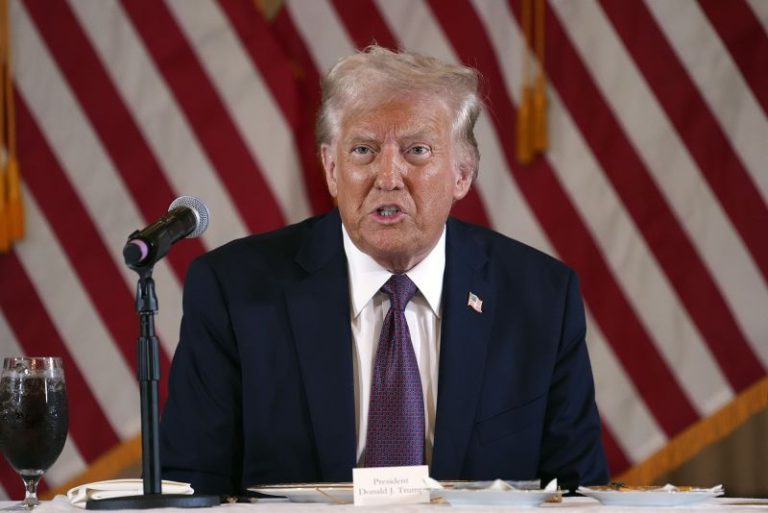From Gaza to Greenland, the disruptive force of President-elect Donald Trump is being felt across the world, his incoming administration casting aside conventional diplomatic niceties in favor of an intensive global pressure campaign that already appears to be yielding results.
In the Middle East, Trump quickly took credit for the Israel-Hamas hostage deal resulting from months of painstaking negotiations involving Biden and Trump administration officials working alongside US allies.
“This EPIC ceasefire agreement could only have happened as a result of our Historic Victory in November,” Trump posted on his Truth Social platform.
“We have achieved so much without even being in the White House. Just imagine all of the wonderful things that will happen when I return,” he added.
It is hard to deny that Trump’s implicit threat that there would be “hell to pay” if there was no Israel-Hamas deal before his inauguration on January 20 appears to have focused minds, not least among those in the Israeli government keen to lock-in Trump’s enthusiastic backing as he is poised to start a second US presidential term.
Friend and foe alike appear to be approaching the mercurial, unpredictable Trump – bolstered by his resounding US presidential election victory in November – with trepidation, franticly working to appease the president-elect amid concern his praise and favor could rapidly turn to fury.
One Israeli diplomat told me it was in his countries’ national interest to “keep Trump happy” amid concerns his “unflinching support for Israel were to suddenly flinch.”
That certainly doesn’t sound like the traditional basis of a stable international relationship, but in the short term Trump’s Might is Right, America First rhetoric is already proving remarkably effective, not just in Israel but across the gamut of global affairs.
Take Trump’s recently revived offer to buy Greenland, the vast frozen territory owned by Denmark and sitting strategically between the US and Russia on giant mineral deposits. The same suggestion, made by Trump in his first term, was scoffed at.
This time, Trump’s offer was accompanied by a chilling threat of US military force, or at least a refusal by the next US commander-in-chief to rule it out. The Danish and Greenlandic answer, for the moment, is still that Greenland is not for sale. But the possibility, however remote, has been scrutinized far more anxiously this time. Trump is, whatever else, being taken seriously.
Elsewhere, some nations are taking pre-emptive steps to appease the concerns of the incoming Trump administration or to avoid direct negotiations over sensitive issues.
In South Korea, for example, a five-year deal was agreed ahead of the November US election to share the cost of keeping more than 28,000 US troops in the country. The negotiations concluded early amid memories in Seoul that Trump, during his first presidency, had accused South Korea, a key Asian ally, of “free-riding” on US military might, and demanded that it pay as much as $5 billion a year for the deployment.
But it is Russia’s brutal war in Ukraine where the Trump factor could next produce extraordinary results. The president-elect once suggested he would end the conflict in a single day, but is now pushing more serious proposals to force an end to the violence, if not the Russian occupation.
Both Vladimir Putin, the Kremlin strongman, and the beleaguered Ukrainian President Zelenskyy, have cautiously welcomed Trump’s blustering intervention. To not do so may trigger the Trump factor’s unpredictable wrath.

